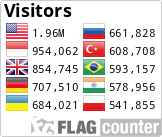Modeling the Interactive Relationship Between Macroeconomics and Institutions on Stock Market Liquidity in Sub-Saharan Africa
DOI:
https://doi.org/10.59613/global.v3i2.381Keywords:
Macroeconomics, Institutions, Stock Markets, Generalized Method of Moments (GMM), Sub-Saharan AfricaAbstract
Stock markets play a crucial role in enabling the easy exchange of financial assets globally. The effectiveness of stock markets worldwide, including those in sub-Saharan Africa, depends heavily on having sufficient liquidity. However, research shows that stock markets in sub-Saharan Africa often lack enough liquidity, leading to inefficiencies and high trading costs. Therefore, this study aimed at investigating the interactive relationship between macroeconomics and institutions on stock market liquidity in sub-Saharan Africa. The study adopted ex-post facto research design. The population of the study consisted of 26 stock markets in Sub-Sahara African countries. Purposive sampling technique was used to select 11 most prominent stock exchanges in terms of trade volume and market liquidity. The study employed secondary data sourced from World Governance Indicators, World Development Indicators between 1996 and 2023. The study employed Generalized Method of Moments (GMM) for the analysis. The findings of the study were that: the interaction of government effectiveness and macroeconomic index has a significant negative effect on stock market liquidity with (β = -0.431; p-value = 0.004); the interaction of regulatory quality and macroeconomic index has significant positive effect on stock market liquidity with (β = 0.521; p-value = 0.000); the interaction of rule of law and macroeconomic index has insignificant positive effect on stock market liquidity with (β = 0.434; p-value = 0.239); the interaction of political stability and absence of violence and macroeconomic index has a significant negative effect on stock market liquidity with (β = -0.083; p-value = 0.008); the interaction of control of corruption and macroeconomic index has a significant negative effect on stock market liquidity with (β = -0.463; p-value = 0.000); and the interaction of voice and accountability and macroeconomic index has a significant negative effect on stock market liquidity with (β = -0.501; p-value = 0.033). The study concluded that the interaction between macroeconomics and institutions affect stock market liquidity in sub-Saharan Africa. Therefore, the study recommended that investors should diversify their investment portfolios to mitigate risks and focus on markets with strong governance, regulatory quality, and political stability to achieve sustained returns on investment in the SSA region.
Downloads
Published
How to Cite
Issue
Section
License
Copyright (c) 2025 Ibrahim Abdullahi, Ganiyu Mustapha, Stephen John

This work is licensed under a Creative Commons Attribution 4.0 International License.













